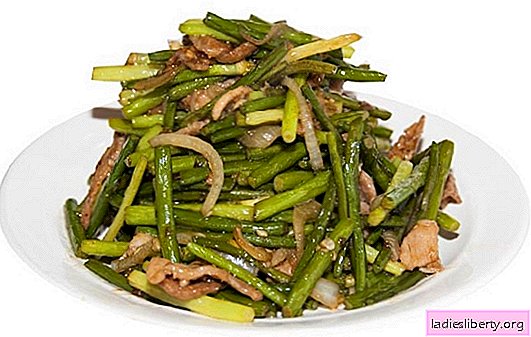
Thrush (candidiasis) is a disease characterized by damage to the mucous membranes and skin integument with a yeast-like fungus of the genus Candida. This fungus belongs to opportunistic microflora and is constantly present in the human body, participating in metabolic processes, but its immune system controls the growth of the number of these microorganisms. When a person’s immunity is weakened, the fungus begins to multiply rapidly and a disease occurs.
The most common vaginal candidiasis in women and oral candidiasis (usually in infants). Vaginal candidiasis is a female form of thrush, which can occur at any age. Although the route of transmission of vaginal candidiasis pathogens can be sexual, it is not a sexually transmitted disease, but has a similar clinical picture with them. Thrush can occur in men (after unprotected intercourse).
Thrush - causes
Intensive propagation of the fungus can most often be caused by:
- weakening of immunity;
- stress;
- chronic infections;
- hypothermia;
- sexually transmitted diseases;
- taking birth control pills;
- taking antibiotics;
- wearing tight synthetic underwear;
- pregnancy.
Thrush can also occur with some endocrine diseases (diabetes, obesity, thyroid dysfunction).
Thrush - symptoms
Thrush is characterized by similar symptoms with other infections of the genitourinary organs, and sometimes accompanies them. We are talking about trichomoniasis, gardnerellosis, gonorrhea, genital herpes, etc.
In women, the symptoms of thrush are most often manifested several days before the onset of menstruation, and in individuals prone to allergic reactions, the manifestations of the disease are always more active.
Vaginal candidiasis is manifested primarily:
- a sharp and severe burning sensation in the genital area, aggravated by night and after taking a hot bath;
- redness of the genitals;
- inflammation of the mucous membrane of the external genitalia and pain;
- copious discharge, having the appearance of a curd mass;
- pain during urination;
- pain during intercourse from touching the inflamed mucous membrane.
Thrush - diagnosis
Diagnosis of the disease is based on the study of its clinical picture and laboratory diagnosis of the disease: smear microscopy of secretions from the affected areas of the mucosa; cultural diagnosis (seeding); enzyme immunoassay.
Thrush - treatment and prevention
For successful treatment of thrush, you need to know the exact diagnosis, therefore, if any alarming symptoms appear, you should consult a doctor. However, even before visiting a doctor, a woman may begin to carry out some recommendations to alleviate her condition. First, you should abandon sexual contact so as not to transfer the causative agents of the disease to your partner and not to get sick again during sexual contact after recovery.
It should be washed more often, but not with soap, but with water that has an alkaline reaction or has disinfecting properties (to get it, you just need to add a little baking soda or furacilin to the water). When washing with soap, itching only intensifies.
In food, you should abandon hot spices, vinegar, which aggravate burning in the perineum, as well as sweet, bakery products, food and drinks containing yeast, which contribute to the creation of an ideal environment for the development of pathogens of thrush. For the duration of the disease, preference should be given to vegetables, cereals, dairy products.
The doctor will also prescribe medication for thrush. With its mild course, as a rule, you can cope with the disease using local treatment, which is carried out by using antifungal creams, vaginal tablets or suppositories: Clotrimazole, Miconazole, Natamycin, Nystatin, etc. Using such suppositories and creams, you can cure thrush for a week, it is possible to cope with a new generation of drugs in 1-2 days (by taking Diflucan, Flucostat, Forkan, Mikomax, etc. once). Only a course of treatment repeated twice can give a full guarantee of recovery.
Prevention of thrush consists in observing hygiene rules, refusing to have a promiscuous sex life, wearing underwear made from natural materials, strengthening immunity, avoiding stress, hypothermia, etc.
Comments











